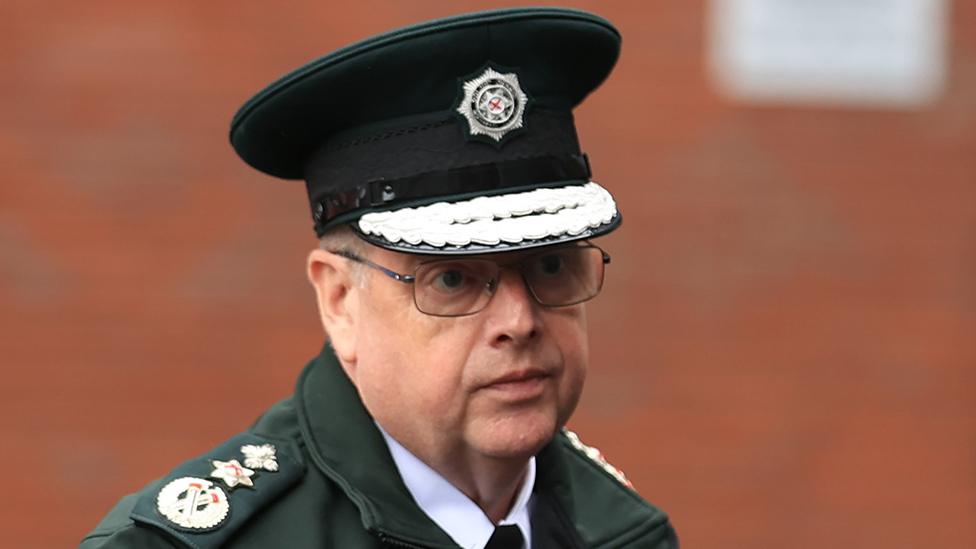PSNI chief constable: Who are the two candidates for the top job?
- Published
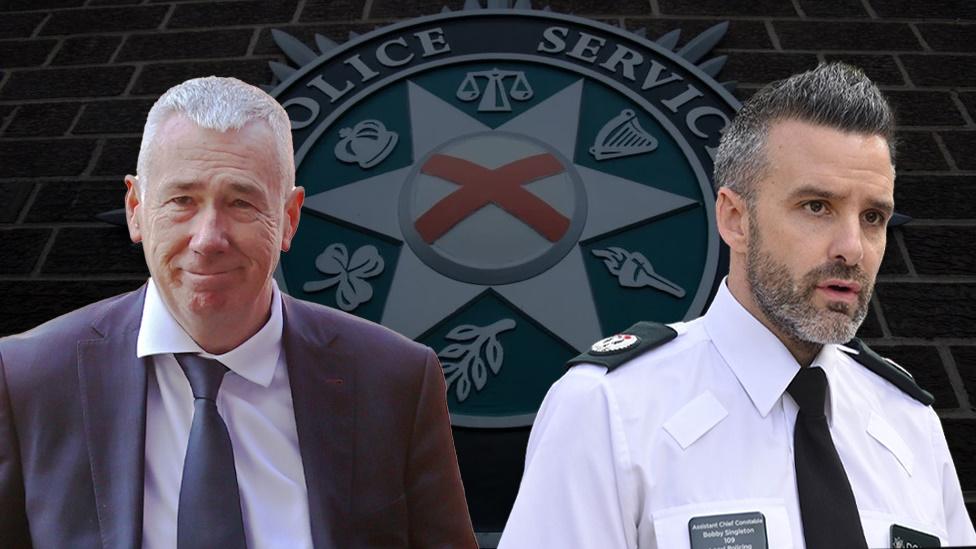
Jon Boutcher and Bobby Singleton are the two candidates in the PSNI's search for a new leader
A major funding gap, low morale within the force and the continued fallout over a massive data breach.
Those are just some of the issues the next Police Service of Northern Ireland (PSNI) chief constable will face.
The previous chief constable, Simon Byrne, resigned in September after a series of crises under his leadership.
Now two candidates are in the running for one of the biggest jobs in UK policing, with interviews taking place on Monday.
The job pays about £220,000 a year on an initial five-year contract.
A five-person panel from the Policing Board, which oversees the PSNI, will interview and eventually select the successful candidate.
But who are the two men in the running to become Northern Ireland's next top cop?

Jon Boutcher
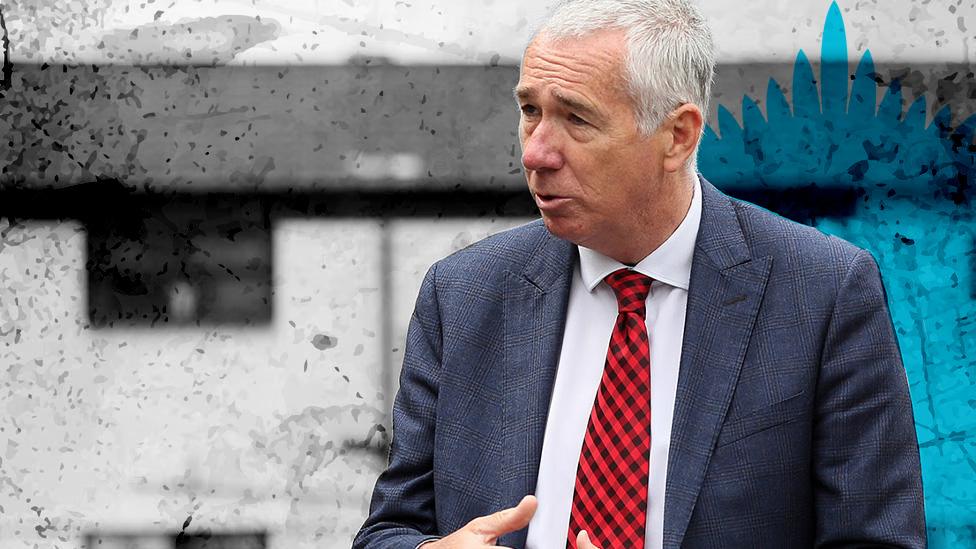
Jon Boutcher has over 35 years of policing experience under his belt and is the current interim chief constable of the PSNI.
His appointment to the top job just a few weeks ago was confirmed by Northern Ireland Secretary Chris Heaton-Harris.
However Mr Boutcher has spent most of his career as a detective in the the Metropolitan Police.
He also led a number of counter-terrorism commands in Scotland Yard, including the manhunt for those responsible for the London bombings in July 2005 and the 2007 Glasgow Airport attack.
In 2014 he took over as chief constable of Bedfordshire Police until he retired five years later.
He was previously one of four candidates shortlisted for the PSNI chief constable job in 2019 but missed out to Mr Byrne.
His bid to become chief of the Metropolitan Police in February 2022, after the resignation of Cressida Dick, was also unsuccessful.
Mr Boutcher has also led several high-profile independent investigations linked to Northern Ireland's Troubles.
In 2016 he took charge of Operation Kenova, examining crimes, including those linked to the agent known as Stakeknife, and the role played in those by the security services, including MI5.
The report is due to be published in the coming months and Mr Boutcher previously said his stint as the interim chief constable would not delay its publication.
Last month he announced he would not appeal a court ruling that stated two PSNI officers were unlawfully disciplined after a Troubles commemoration event in 2021.
During his time in office, Mr Byrne had said he was considering an appeal but he resigned a few days later.
Mr Boutcher has a master's degree from Cambridge University in criminology and executive police management.

Bobby Singleton
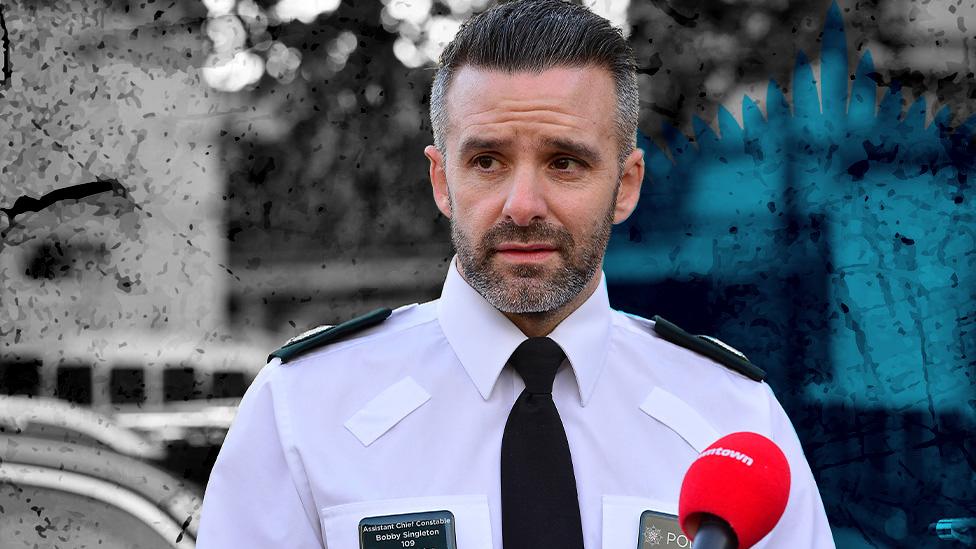
Shortly after the formation of the PSNI in November 2001, Bobby Singleton joined as one of the force's first student officers.
Over the past 22 years, he has worked his way through the ranks to become of one Northern Ireland's most senior officers.
Now an assistant chief constable, he has a broad range of experience within the PSNI, including community policing and public safety, and as a detective he investigated sexual violence, terrorism and organised crime.
While working as a superintendent between 2014 and 2016, he led Belfast's community policing services and acted as a commander for a number of multi-agency operations.
He was later chosen to lead the PSNI's paramilitary crime taskforce and was the force's lead for tackling drugs and organised crime before his appointment as assistant chief in January 2022.
During a visit to Londonderry in September, Mr Singleton said officers had questioned the timing and planning of house searches which led to disorder in the city.
Police had sustained burns, head injuries and potential fractures during hours of rioting in the Creggan estate, which involved children as young as eight.
He is the chair of the force's athletic association as well as a member of the Newforge Community Development Trust and a senior sponsor of the PSNI's autism support group.
He also holds a degree in modern history as well as a postgraduate diploma and master's degree in police leadership and management.
- Published19 October 2023

- Published5 September 2023
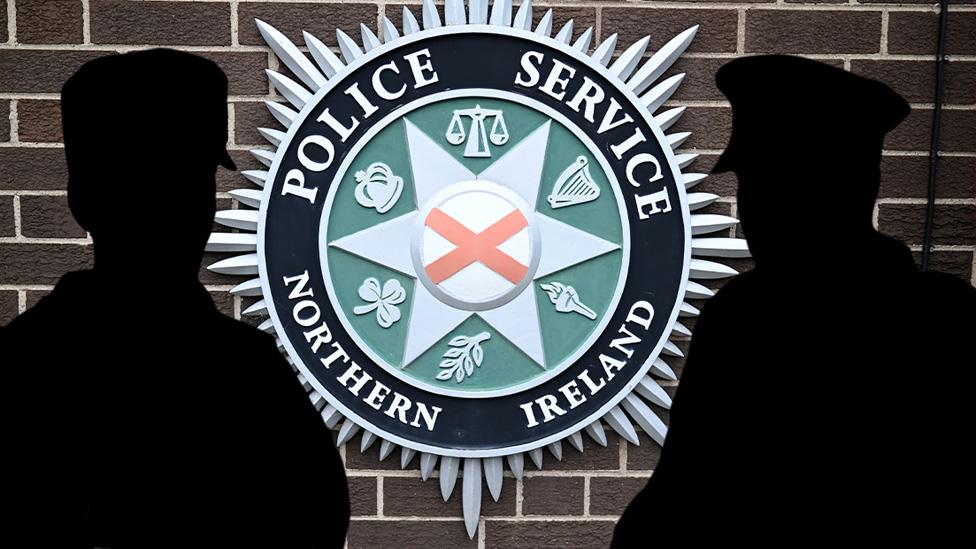
- Published4 September 2023
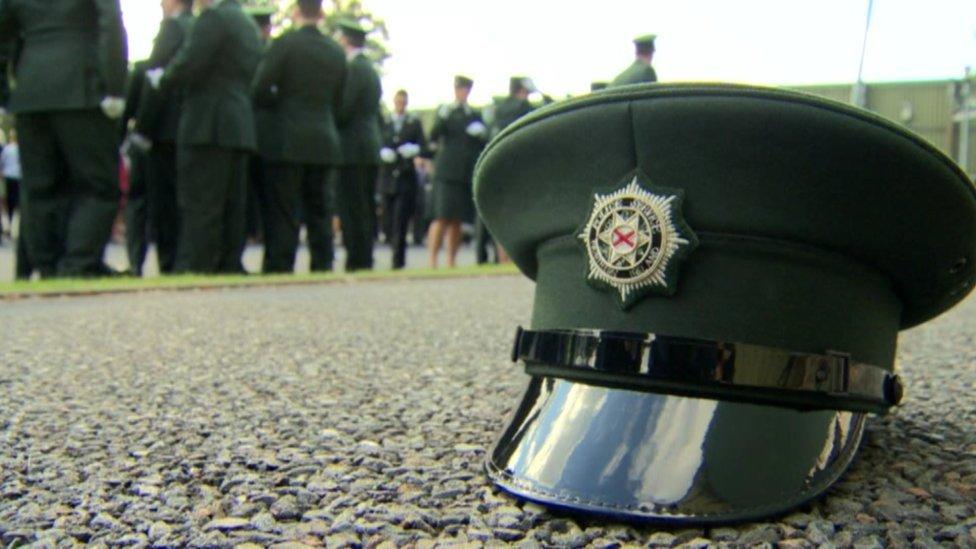
- Published4 September 2023
